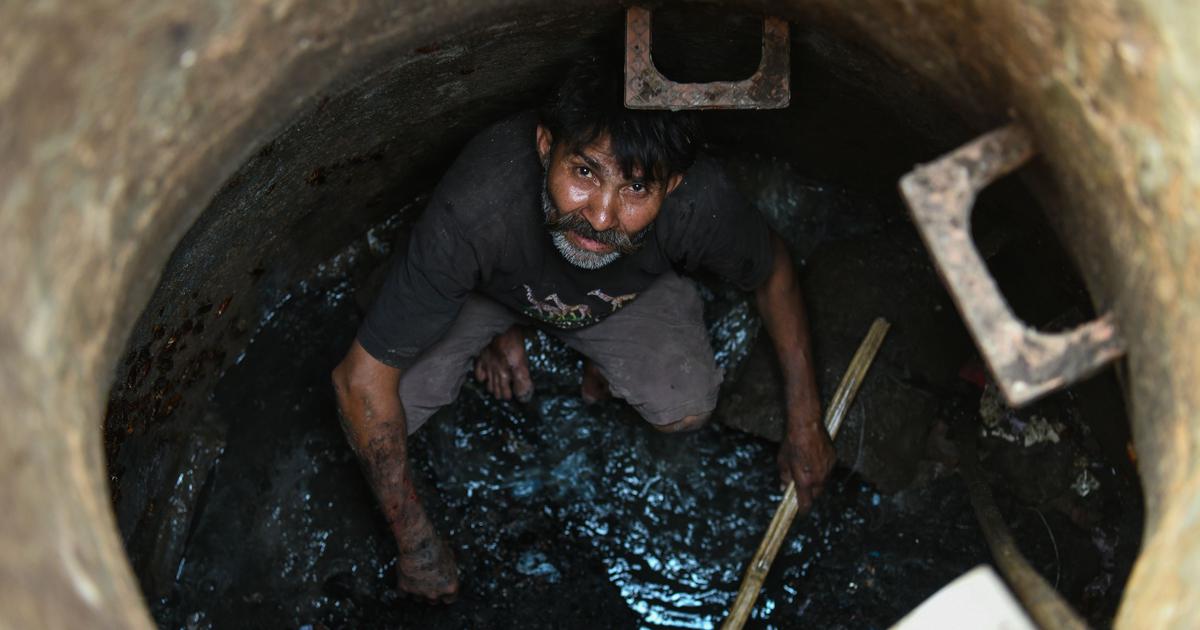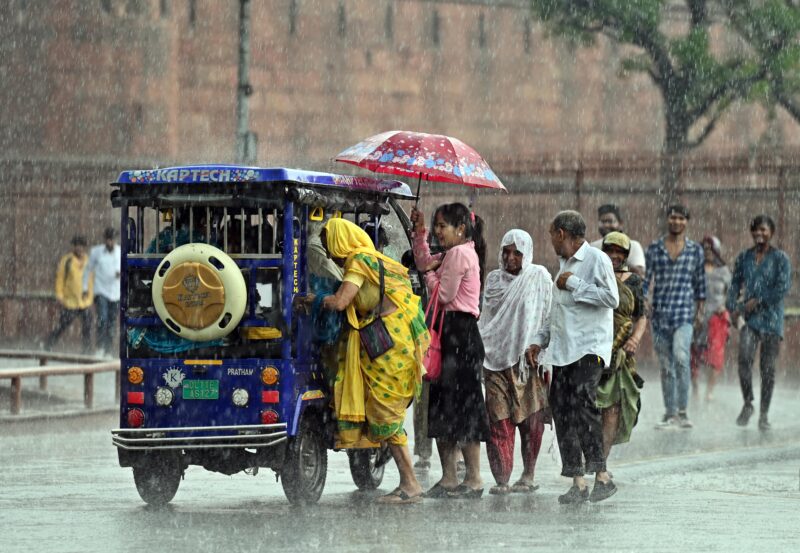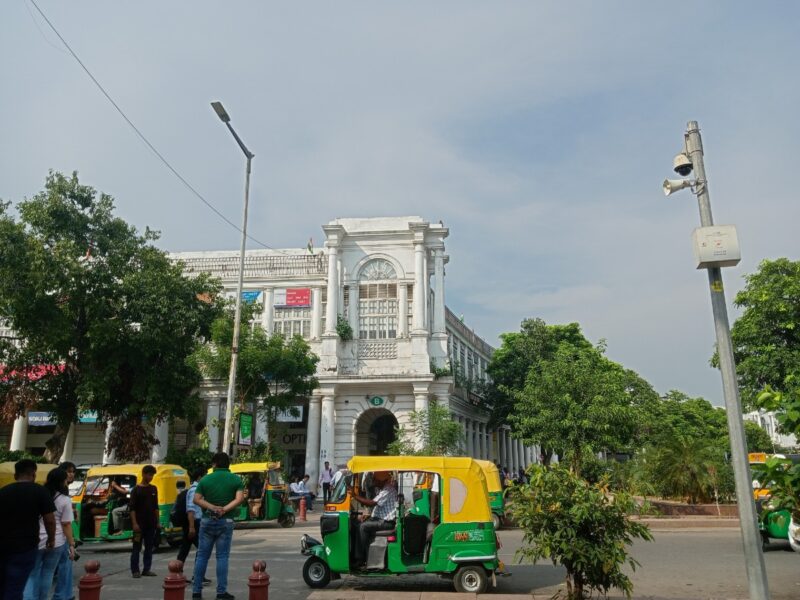Gudia is not willing to send her husband to clean the sewer. “Woh ye kaam nahin karte”, (he does not do this work), she says. Despite her explicit wishes, Puran Kumar undertakes this disgusting work occasionally.
Puran belongs to the Valmiki community and works as a sweeper. Sometimes, for extra money, he dives into the sewer to clear a blockage.
“I do all this for my family,” says Puran. The family in Badarpur, New Delhi, includes four children — two sons and two daughters — and a 90-year-old mother. He makes around Rs 12,000-14,000 a month by sweeping private buildings, but sometimes, he takes up tasks like cleaning sewers for mere Rs 300-500.
“I am scared to do this, but what else can I do? This is how I earn some extra money to survive in Delhi”, says Puran. Puran hails from Aligarh, Uttar Pradesh and has been living in Delhi for the last 25 years. Gudia helps him in his work of sweeping and collecting garbage. When we asked her why she is not ready to send her husband, she says, “Sewer is like a well of death.”
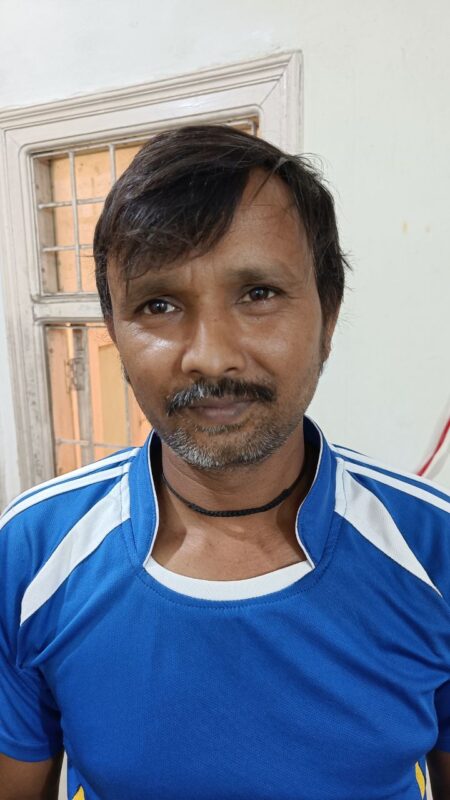
She is right, for recently, six people in the national capital lost their lives after falling in a sewage pit. One incident that took place in Sector 16 of Rohini killed four people – three of whom were contractual private employees working for MTNL. The fourth victim was a rickshaw driver who died while saving the other three.
The deceased have been identified as Bachu Singh, Pintu, Suraj Kumar and rickshaw puller Satish. Although they were not sanitation workers, they died so that the city would be clean.
The other incident took place in Delhi’s Kondli area, where two workers doing repair work of a motor at the Jal Board Sewage plant died after falling into the pit. The deceased have been identified as Nitesh (25) and Yashdev (35).
“Last month, I fainted while cleaning a sewer in Munirka. But thank God, my fellow saved me”, said Puran. He is not alone. There are thousands like him, who belong to the Dalit community, and risk their lives for a measly sum of money. Sometimes when MCD workers do not come for their shifts, these people are hired to clean the sewer. They dive into the sewer without any safety gear at great risk to their lives.
After these incidents from Rohini and Kondli were reported, the National Human Rights Commission (NHRC) took suo moto cognisance. The commission has issued notices to the Chief Secretary of Delhi, the Commissioner of Police, Delhi and the Chief Executive Officer, Delhi Jal Board calling for a detailed report on the Kondli sewage deaths within four weeks.
The Commission has also sent notice to the Chief Secretary of Delhi, the Commissioner of Police, Delhi and the Chairman, MTNL calling for a detailed report on the Rohini sewage deaths.
In these reports, NHRC has asked about action against the responsible officials. Moreover, the Commission has also asked about relief and rehabilitation provided to the next of kin of the deceased persons.
“Expressing serious concern over the continued incidents of the deaths in sewage-related works in the absence of proper equipment and safety measures, the Commission has observed that apparently, due diligence is not being exercised by the authorities concerned despite the directions from the Apex Courts and its interventions” reads the notice.
Other parts of the nation also witnessed losses related to sewage mishaps. Two sanitation workers reportedly died while cleaning a sewer in the Saadatganj area of Lucknow. Family members of the deceased have accused the private companies of not providing any protective gear.
In Bikaner, Rajasthan, four workers lost their lives while cleaning a septic tank in the Karni industrial area.
On 10 March, three sanitation workers in Mumbai’s Kandivali area died because of toxic gas while cleaning a septic tank. These are only some of the cases which were reported, but there are many instances where the issue is buried after paying compensation money.
Bezwada Wilson, National Convenor of Safai Karamchari Andolan and a human rights activist, while talking with Patriot, highlighted the reasons behind this problem. “98% people involved in manual scavenging are from Dalit community. That’s why the government is not focusing on them”, he said.
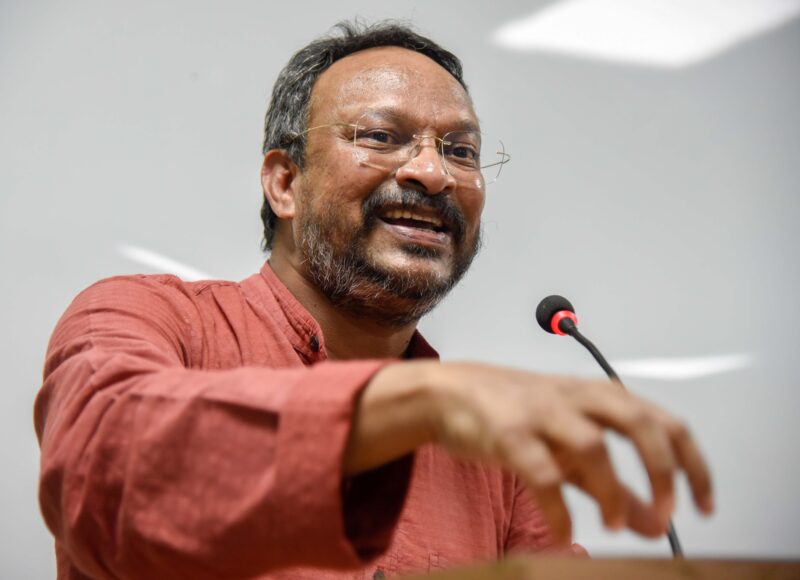
“There are many cases which go unreported, and in a nation like India, you can’t expect all cases to get reported. The sad truth about the situation is that there are laws and judgements to deal with this problem, but we are still witnessing around 2,000 deaths of manual scavengers, and still, we are silent” he added.
The law, like the Prohibition of Employment as Manual Scavengers and their Rehabilitation Act 2013, prohibits the practice of manual scavenging in India. According to the act, no person, local authority or agency should engage or employ people for hazardous cleaning of sewers and septic tanks. Violation of this act could lead to two years of imprisonment or a fine or both.
In a landmark judgement in 2014, the Supreme Court of India ordered states to abolish manual scavenging. In its judgement, the bench comprising then Chief Justice of India P Sathasivam and Justices Ranjan Gogoi and NV Ramana said, “For sewer deaths, entering sewer lines without safety gears should be made a crime even in emergencies.”
According to the data cited in the Lok Sabha by State Minister of Social Justice and Empowerment Ramdas Athawale, 325 people have lost their lives in accidents while cleaning sewer and septic tanks in the last five years. Athawale also highlighted that no death is reported from engaging in manual scavenging.
If we look at the data, the national capital has reported 43 deaths and stands third in the country after Tamil Nadu (43) and Uttar Pradesh (52).
Delhi govt’s stance
According to Delhi Jal Board Budget 2021-22, the board has deployed 200 mini sewer cleaning machines to eradicate manual scavenging. These machines are used to clean sewer lines in narrow lanes. “Implementation of this scheme has also resulted in providing employment and entrepreneurship to the families of deceased during sewer cleaning”, reads the budget.
While talking with Patriot, Bhupesh Kumar, Additional Chief Engineer, Delhi Jal Board explained about the scheme saying, “200 machines are deployed by us on the service contract. The service contract is given to kin of deceased manual scavengers and people belonging to the SC/ST community. In this, we are getting handholding support from the Dalit Indian Chamber of Commerce and Industry. This scheme was launched in 2019 and is a successful program. We have made 200 people self-sufficient and brought them into the mainstream of the society, and to do this, the board has not spent a penny.”
The machine costs around Rs 35 lakh and a 25% subsidy is provided by the central government. After expenses, an individual makes around Rs 30,000-40,000 profit a month, Kumar added.
When asked if there is any other scheme that the Delhi government has launched or is planning to launch to control manual scavenging, he said, “We have started rolling out a scheme named Mukhya Mantri Muft Septic Tank Yojna. Under this scheme, we will provide cleaning service of septic tanks in 1,800 unauthorised colonies. In this, we will use automatic machines, which will use pump technology to clean the tank. This will employ 150 people. One person can own two machines, and the same method of service contact will be used. We have got the tender, and in four months, these machines will be on-road”.
He further said that in 2018, under Delhi Water Board Septage Management Regulation, majority of the work-related cleaning of septic tanks and sewers was given to Delhi Jal Board.
For more stories that cover the ongoings of Delhi NCR, follow us on:
Instagram: https://www.instagram.com/thepatriot_in/
Twitter: https://twitter.com/Patriot_Delhi
Facebook: https://www.facebook.com/Thepatriotnewsindia

